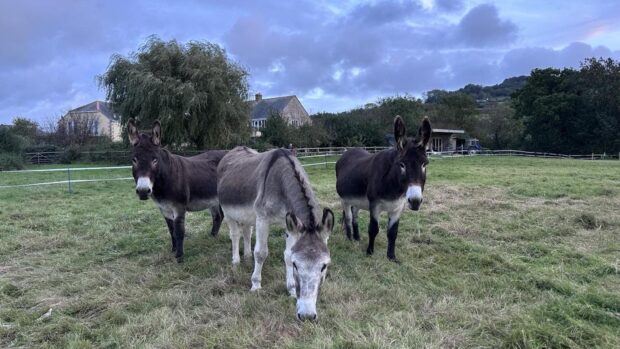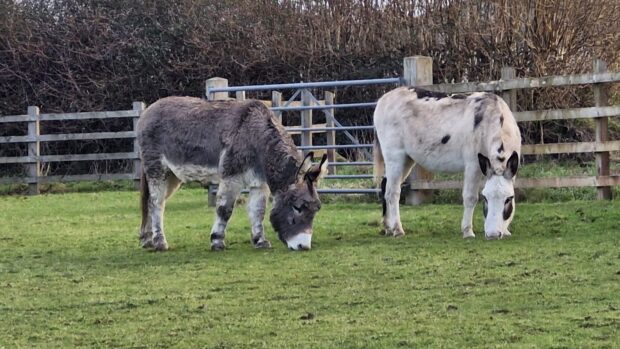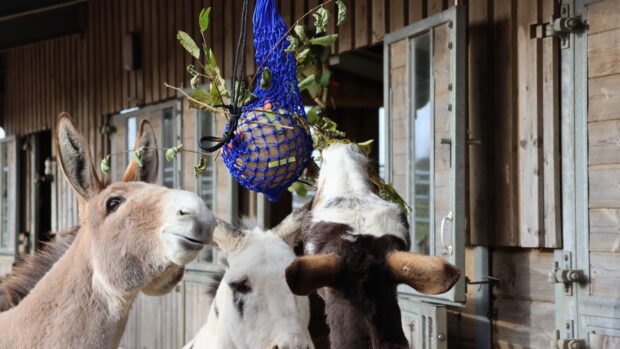Donkey populations are being pushed to the brink of collapse by the demand for their skins, a leading charity has warned.
Millions of donkeys each year are being stolen, transported and killed as traders harvest their hides to export as an ingredient for the traditional Chinese medicine ejiao.
The Donkey Sanctuary has reported that the animals are in a state of “global crisis” and has called on governments to put an urgent halt to the trade.
In an update to itsUnder The Skin campaign, the charity revealed that local populations have been “virtually wiped out” in several countries as the numbers being slaughtered are “unsustainable”.
The Chinese donkey population has declined by 76% since 1992 and since 2007, donkey populations have declined by 28% in Brazil, by 37% in Botswana and by 53% in Kyrgyzstan.
The gelatin from the hides provides a key ingredient in ejiao production, which requires 4.8 million skins per year. The demands cannot be met within China, leading traders to source skins in Africa, Asia and South America.
Donkeys are key to the livelihoods of more than 500 million people world wide, particularly in some of the world’s poorest communities and projections suggest that the ejaio industy will require more than half the world’s current donkeys over the next five years to meet demand.
Stephen Njoroge from Kiserian, near Nairobi, Kenya, is totally dependent on his donkeys for his livelihood, and all of them were stolen on the same night.
“I used my donkeys for general transport, collecting water, taking vegetables to market and carrying construction materials,” he said.
“I am still recovering from the loss. I have heard much about the donkey slaughterhouses and they are causing the thefts in this area – they should be closed down straight away; it is the only way to stop the thefts.”
To provide enough skins, pregnant jennys, foals and sick animals are being stolen and transported miles without food, water or rest before facing appalling conditions in slaughterhouses.
One slaughterhouse in Africa was immediately closed after witnesses recorded footage of dead and dying donkeys some with open, maggot-infested wounds. Aborted foetuses were also seen as well as skinned carcasses dumped next to live donkeys awaiting slaughter. The slaughterhouse has since reopened.
In Brazil, 800 donkeys were found starving to death in holding pens alongside hundreds of rotting carcasses which had polluted their only water source. In Tanzania, footage obtained by the Donkey Sanctuary revealed animals being repeatedly hit with hammers in failed attempts to stun them.
The charity said the skin trade is also creating a biosecurity risk “at every stage” of both its legal and illegal activity. Unhygienic practices are leading to the spread of anthrax; equine flu and strangles.
Continues below…

‘It’s just boiled donkey skin’: Chinese health officials rubbish ‘inhumane’ product
Demand for ejiao, derived from donkey hides, has led to the slaughter of millions of donkeys

Sickening pictures of dead and dying donkeys show skin trade has spread *warning, upsetting pictures*
‘What I saw happening is inhumane and sickening and we believe this is just the tip of the iceberg’

Subscribe to Horse & Hound magazine today – and enjoy unlimited website access all year round
Mike Baker, chief executive of The Donkey Sanctuary, has called for urgent action to be taken, including that the ejaio industry cuts ties with the global skin trade.
He is suggesting that the industry moves towards “more sustainable sources of raw materials” provided by cellular agriculture, such as the use of artificially-grown, donkey-derived collagen.
“This is suffering on an enormous and unacceptable scale. This suffering is not just confined to donkeys as it also threatens the livelihood of millions of people,” he said. “The skin trade is the biggest threat to donkey welfare we have ever seen.”
The charity is also recommending that the Chinese government suspends the import of donkeys and their products until both can be proven as disease-free, humane, sustainable and safe. National governments are also being called on to do their part in stopping the trade.
Would you like to read Horse & Hound’s independent journalism without any adverts? Join Horse & Hound Plus today and you can read all articles on HorseandHound.co.uk completely ad-free




